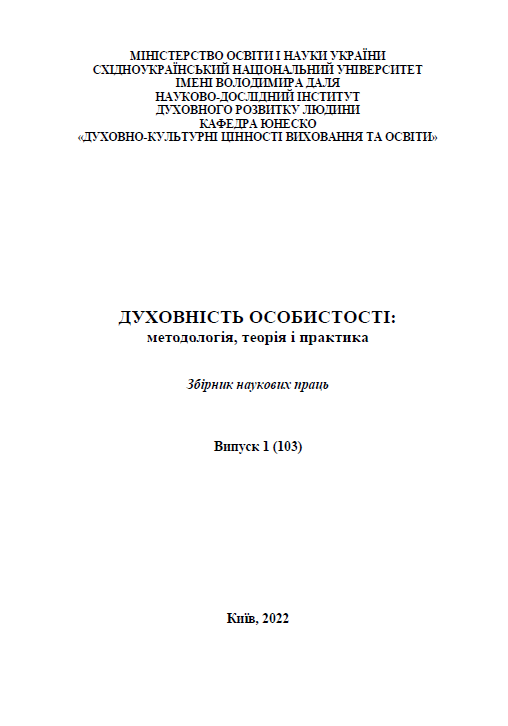РОЛЬ ТРУДОВОГО ВИХОВАННЯ І ПРОФОРІЄНТАЦІЇ В УМОВАХ ВОЄННОГО СТАНУ
DOI:
https://doi.org/10.33216/2220-6310-2022-103-1-150-160Ключові слова:
профорієнтація, трудове виховання, ціннісні орієнтації, професійне самовизначення, ринок праціАнотація
У статті актуалізована необхідність переосмислення ролі трудового виховання і профорієнтації в освітньому процесі, зважаючи на зміну соціальної ситуації розвитку учнів, нові виклики пов’язані з воєнним станом в Україні, руйнацію інфраструктури міст, зміни на ринку праці. Для реалізації мети статті обґрунтовано важливість трудового виховання і професійної орієнтації в освітньому процесі ЗЗСО; узагальнено роль трудового виховання і професійної орієнтації в становленні підростаючої особистості. Виокремлено труднощі у наданні освітніх послуг з трудового виховання і профорієнтації під час дистанційної форми навчання. Підкреслено, що трудове виховання і профорієнтація мають базуватися на методичному арсеналі особистісно орієнтованого підходу, який складають форми, методи і прийоми, що відповідають таким вимогам, як діалогічність, діяльнісно творчий характер, спрямованість на підтримку індивідуального розвитку, представлення дитині необхідного простору свободи для прийняття самостійних рішень, творчості, вибору змісту і засобів навчання і поведінки. Визначено, що освітній процес в умовах воєнного стану повинен бути спрямованим не лише на отримання певних знань, а й мати психотерапевтичну дію, що має безпосередньо втілюватися у зміні ролі вчителя і оптимізації освітнього процесу. Зроблено висновок, що трудове виховання і профорієнтація в умовах воєнного стану мають освітній, терапевтичний та особистісний зміст для учнів. З урахуванням їх ролі і важливості у формуванні особистості як у воєнний, так і поствоєнний час, автором наголошено, що трудове виховання і профорієнтація мають зайняти гідне місце в освітньому процесі. Надано пропозиції щодо оновлення системи профорієнтації в умовах освітнього процесу, а саме: оновлення змісту навчальних планів, яке б базувалось на наукових положеннях особистісного, діалогічного навчання і було максимально наближене до освітніх потреб здобувачів освіти.

